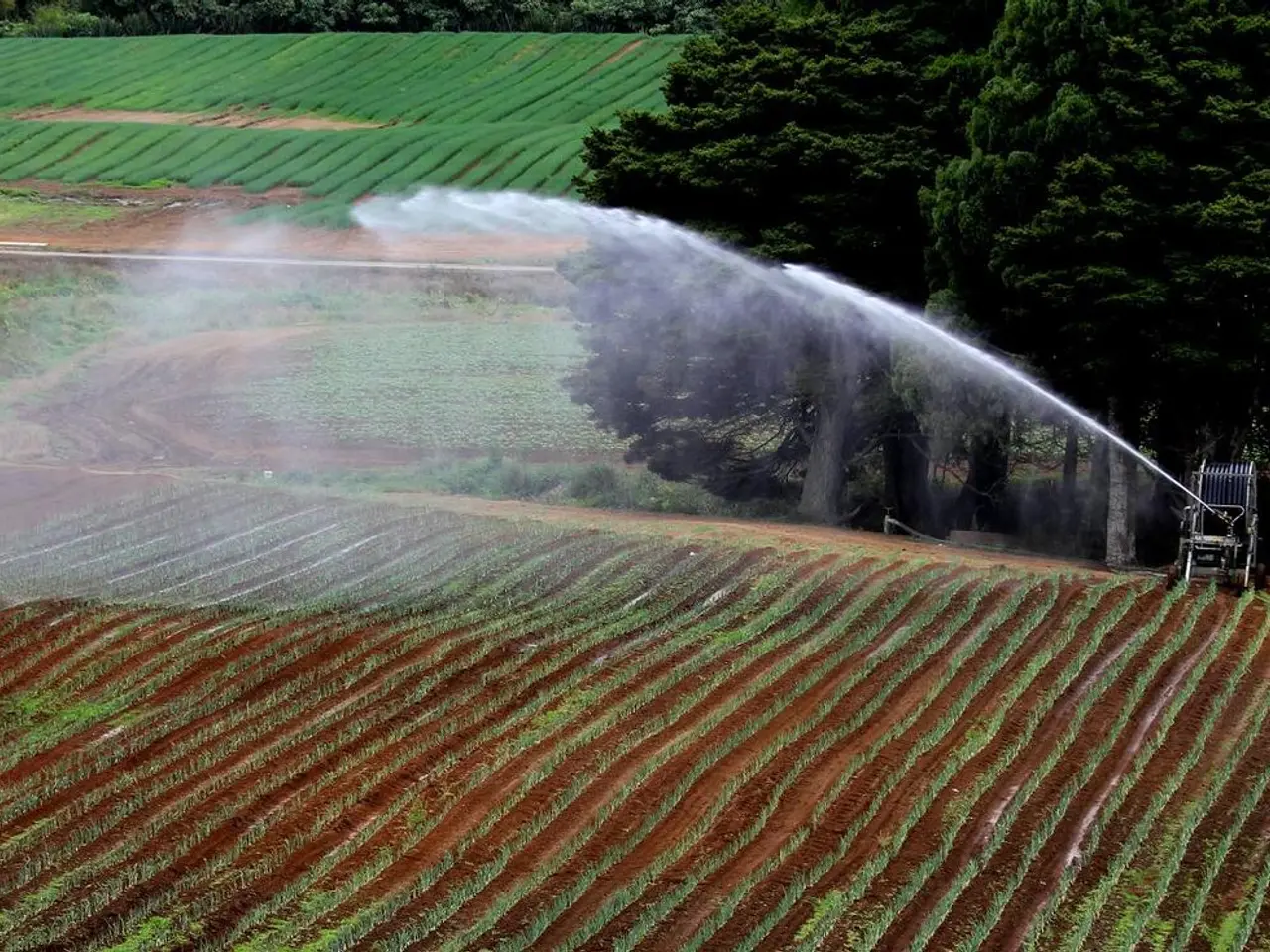Nigeria Introduces First Industrial Biochar Plant to Combat Carbon Discharge
In a significant stride towards addressing climate change and improving soil health, Releaf Earth, a climate-tech startup, has launched Nigeria's first industrial-scale biochar carbon removal facility in Cross River State. This groundbreaking facility marks an important step in scaling up sustainable carbon removal technologies in Africa.
The network of biochar facilities, spearheaded by Releaf Earth, aims to restore soil health, build resilience for millions of African farmers, and contribute to global climate targets. The biochar carbon removal facility in Cross River State produces premium biochar from palm kernel shells, a process that helps sequester atmospheric carbon dioxide and mitigate climate change.
Biochar, a stable form of carbon created by pyrolyzing biomass, when added to soil, enhances carbon sequestration by locking carbon away for long periods. This direct contribution to reducing greenhouse gas concentrations globally supports the goals of limiting global warming under agreements such as the Paris Agreement.
By utilizing locally sourced agricultural waste, Releaf Earth’s facility promotes circular economy principles, reduces reliance on fossil fuels, and supports sustainable land management practices in the region. The facility also generates renewable energy, enabling off-grid deployment, and could potentially see smallholder farmers benefit from over 50% increase in incomes thanks to better harvests and the sale of carbon credits.
The facility targets the removal of 40 kilotonnes of CO2e by 2030, with plans to scale up to 100 kilotonnes. Ikenna Nzewi, CEO of Releaf Earth, expressed his belief that Africa, with its abundance of agricultural waste and rural labor, is uniquely positioned to lead in carbon removal.
Verified carbon credits will be issued via the Riverside Registry for Releaf's biochar production. The startup's patented Kraken machine has already processed over 10,000 metric tonnes of palm nuts, generating biochar-ready waste. Releaf is also developing tools to help other food processors evaluate biochar feasibility using existing agricultural infrastructure.
A 2024 pilot in Cross River showed a 23% boost in crop yields, suggesting promising potential for the technology. Tito Jankowski, CEO of AirMiners, believes Africa could become the most affordable and largest producer of biochar, leading the charge in carbon removal in Africa.
With backing from Y Combinator, Breakthrough Energy Ventures, and others, Releaf aims to build a continent-wide network of biochar facilities. This ambitious plan could revolutionize carbon removal efforts and contribute significantly to the global mission of scaling carbon removal 14,000-fold in the next 25 years to meet global climate targets.
The environmental-science venture, Releaf Earth, is leveraging technology to produce biochar from palm kernel shells, a process that contributes to both climate-change mitigation and soil health improvement, aligning with global climate targets. By scaling up this carbon removal technology across Africa, Releaf Earth's biochar facilities aim to generate renewable energy, contribute to the circular economy by utilizing locally sourced agricultural waste, and potentially increase smallholder farmers' incomes through better harvests and carbon credit sales. With plans to remove 40 kilotonnes of CO2e by 2030 and a goal to build a continent-wide network with the backing of notable investors, Releaf Earth's biochar facilities could revolutionize the carbon removal landscape in Africa and globally.





